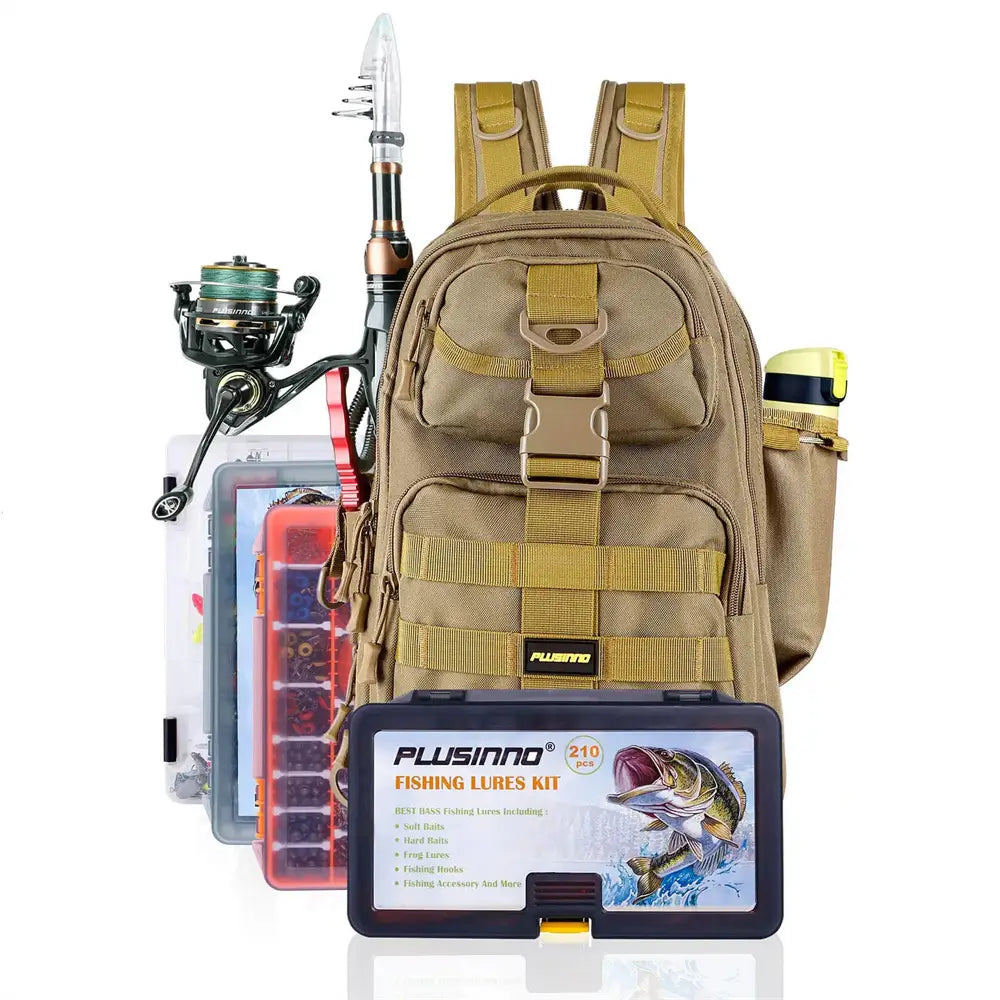When it comes to fishing, having the right gear is essential for a successful and enjoyable experience. One often overlooked but crucial item is the fishing backpack. A fishing backpack serves as your mobile storage unit, carrying all the necessary equipment and supplies for a day on the water. In this ultimate guide, we will explore the key factors to consider when choosing the perfect fishing backpack.
1. Size and Capacity
The first aspect to consider is the size and capacity of the fishing backpack. The ideal backpack should have enough space to accommodate all your fishing essentials, such as tackle boxes, fishing rods, reels, lines, and other accessories. It should also have additional compartments for personal items like snacks, water bottles, sunscreen, and a first aid kit. The backpack should strike a balance between being spacious enough to hold everything you need while still being comfortable to carry for extended periods.
For example, imagine you are planning a full-day fishing trip. You would need a backpack that can hold multiple tackle boxes, a spare reel, extra lines, a fishing rod holder, and various tools. Additionally, you would want compartments for your lunch, water bottle, and personal items. A backpack with a capacity of 30-40 liters would be suitable for such a trip.
2. Durability and Water Resistance
Fishing often involves exposure to water, whether it's from rain, splashes, or wading in the water. Therefore, it is crucial to choose a fishing backpack that is durable and water-resistant. Look for backpacks made from high-quality materials such as nylon or polyester, which are known for their durability and ability to withstand harsh conditions.
Furthermore, consider the backpack's water resistance features. Look for backpacks with waterproof zippers, sealed seams, and a water-resistant coating. These features will ensure that your gear remains dry and protected even in wet conditions. Remember, a fishing backpack is an investment, and choosing a durable and water-resistant one will save you from the hassle of replacing it frequently.
3. Comfort and Ergonomics
Comfort is paramount when it comes to choosing a fishing backpack. You will be carrying it for hours, so it should have ergonomic features that distribute the weight evenly and reduce strain on your back and shoulders. Look for backpacks with padded shoulder straps and a breathable back panel. These features will provide cushioning and ventilation, keeping you comfortable throughout your fishing adventure.
Additionally, consider the backpack's adjustability. Look for backpacks with adjustable straps and a waist belt. These features allow you to customize the fit according to your body shape and size, ensuring maximum comfort and stability. Remember, a comfortable fishing backpack will enhance your overall fishing experience.
4. Organization and Accessibility
Efficient organization and easy accessibility are crucial aspects of a fishing backpack. Look for backpacks with multiple compartments, pockets, and dividers. These features will help you keep your gear organized and easily accessible when you need it. Imagine trying to find a specific lure or tool in a cluttered backpack while the fish are biting – it can be frustrating and time-consuming.
Consider the layout of the backpack's compartments. Look for backpacks with dedicated pockets for small items like hooks, sinkers, and swivels. Additionally, having a separate compartment for wet items, such as a waterproof pocket for a rain jacket or a designated area for a wet towel, can be highly convenient.
Furthermore, think about the backpack's accessibility. Look for backpacks with easy-to-reach pockets and compartments. Some backpacks even have a front-loading design, allowing you to access your gear without having to take off the entire backpack. These features will save you time and effort on the water, enabling you to focus on what matters most – catching fish!
In conclusion, choosing the perfect fishing backpack is essential for any angler. By considering factors such as size and capacity, durability and water resistance, comfort and ergonomics, and organization and accessibility, you can find a backpack that meets your specific needs. Remember, investing in a high-quality fishing backpack will not only protect your gear but also enhance your overall fishing experience. So, gear up with the right backpack and get ready for your next fishing adventure!
